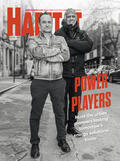HABITAT
Transparency Trend Reaches Homeowners Associations
Marianne Schaefer in Legal/Financial on November 16, 2017

The trend toward greater transparency in cooperatives, condominiums and Homeowner Associations (HOA) continues its relentless march. On October 23, Gov. Andrew Cuomo signed a new law amending the state’s Not-For-Profit Corporation Law. This new amendment expands the rights of homeowners in HOAs to inspect the association’s invoices, ledgers, bank accounts, reconciliations, contracts, and any documents related to the expenditure of HOA dues.
“Generally speaking I see a trend to more and more transparency and a full disclosure of just about all documents,” says attorney Marc Schneider, a managing partner at Schneider Buchel. “I was very surprised that the legislature did not simultaneously amend the Business Corporation Law, which covers co-ops. But I think that, too, will come.” (The current law gives co-op shareholders the right to look at the minutes of shareholder meetings, but not board meetings.)
However, recent court decisions have granted co-op shareholders and condo unit-owners greater access to documents. And the new law on HOA documents follows a recently enacted law requiring co-op and condo boards to prepare annual reports on all awarded contracts in which a director had a financial stake. The law, as written, is not clear and some attorneys interpret it to mean that even if there was no conflict of interest, boards must prepare and distribute an annual report of all contracts.
“I think this is all going a bit too far,” Schneider says of the new HOA law. “It opens up the door for unnecessary scrutiny. The people who want access to these documents might have good intentions and want to help. But anybody who is looking at these documents will come up with their own interpretations, ideas and advice on how the board should or should not do business. This new law lends itself to abuses, possible unnecessary litigations, or the improper use of information.”
Cynthia Lovecchio, board president at The Legend Yacht & Beach Club (LYBC), a 47-unit HOA in Glen Cove, Long Island, is not worried about the current trend in laws and court decisions. “Even though I haven’t read the legislation, I’m a big advocate for transparency,” Lovecchio says. “Yes, this new law will create more work for the boards, but as a homeowner, I also would like to see what’s being done with my money. I think it’s your right; it’s your money. Of course, we only have 47 units. Maybe I would think differently, if we would have 500 units.”
Or maybe not. Alvin Wasserman, director of asset management at Fairfield Properties, which manages LYBC, says, “I think increased transparency will take some of the mystery out of how boards conduct business. If board actions are reasonable, with the best interests of the community in mind, there should be no concerns about transparency.”
Schneider emphasizes that “review” does not mean a homeowner has the right to copy documents or take them out of the office. “The law says 'review,' which by definition means examine and not copy,” he says. “At best, the homeowner is allowed to take handwritten notes. This will protect boards somewhat from the improper dissemination of the information.” He advises having someone present during document inspections to make sure no electronic devices are used. Non-disclosure agreements are not required under the new law. The law does require that the requesting member must have been a homeowner of record for at least six months immediately preceding the inspection request.
Will the new law be a burden to boards and their management companies? Wasserman doesn’t think so. “As for extra work,” he says, “all boards have to do is post their monthly financial reports on the password-protected HOA website.”



